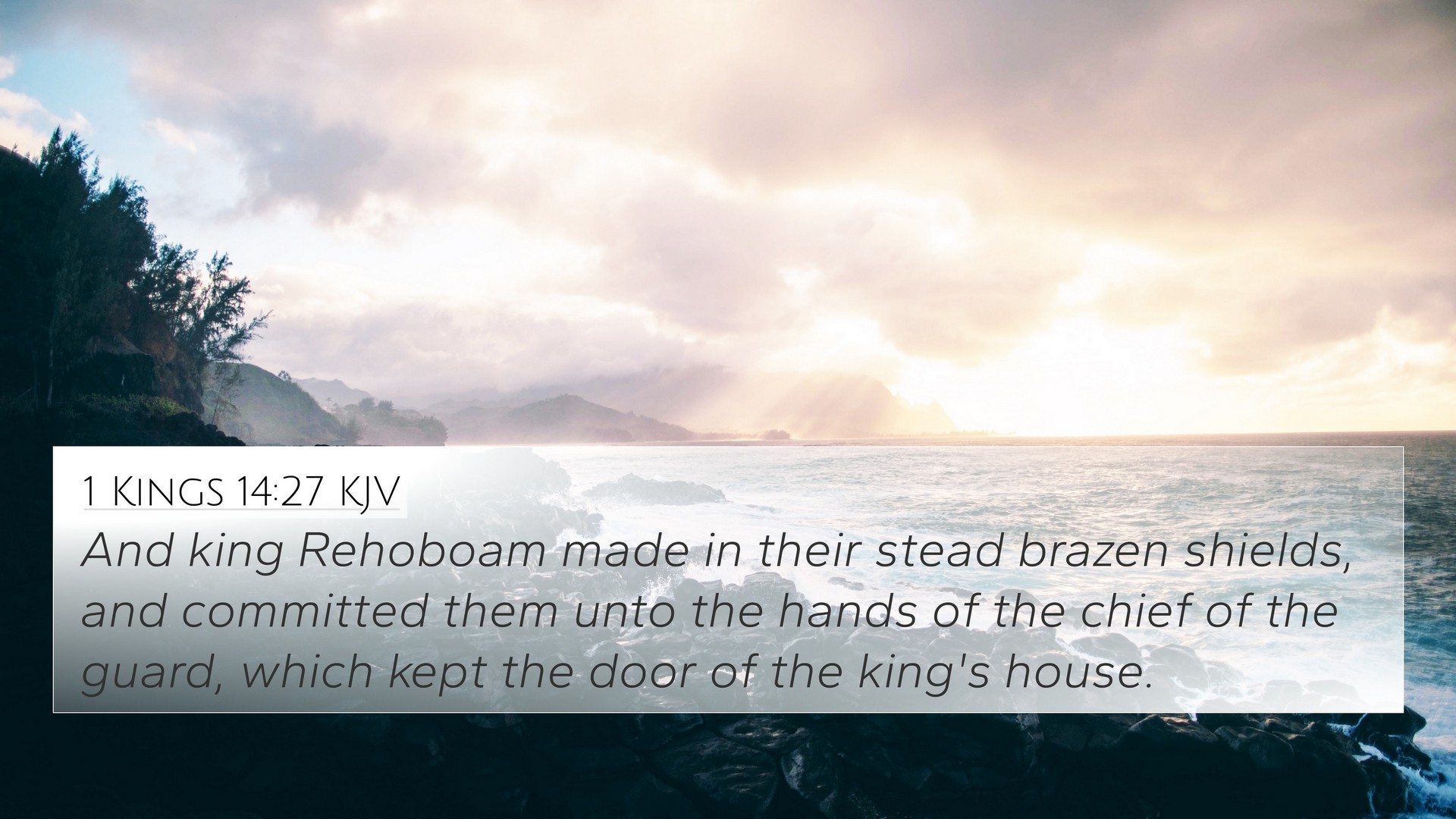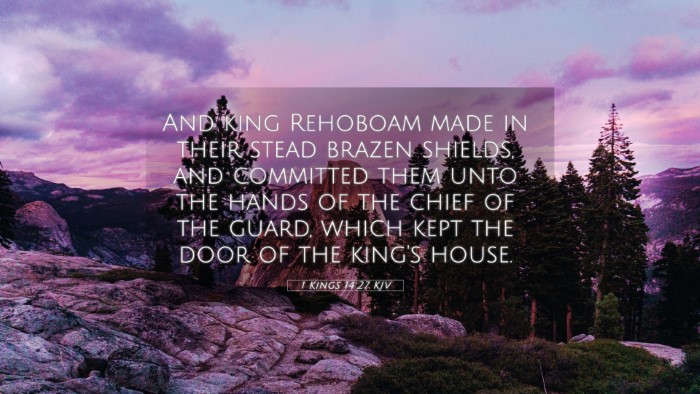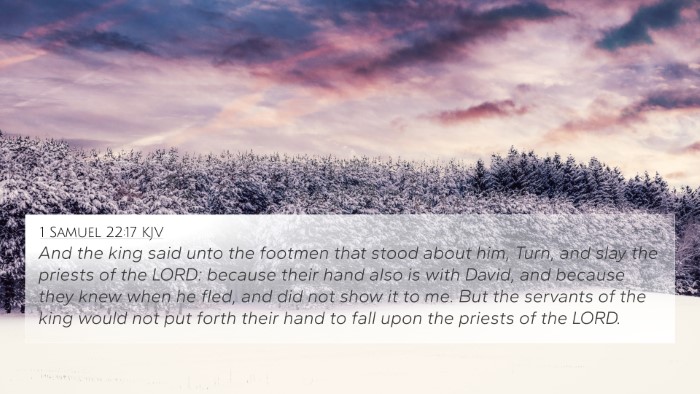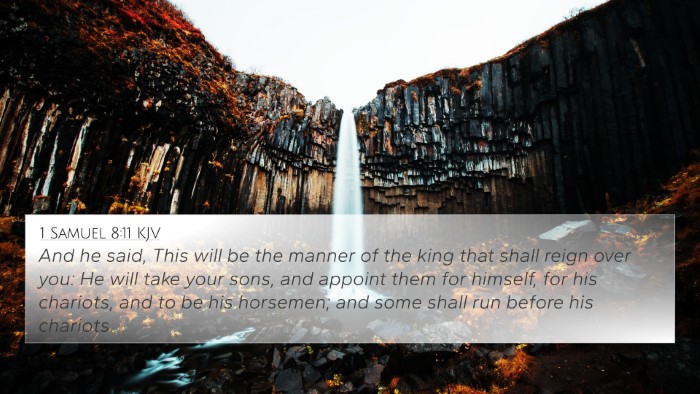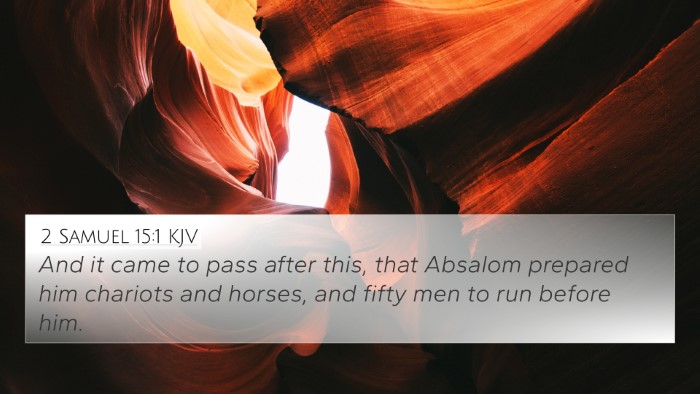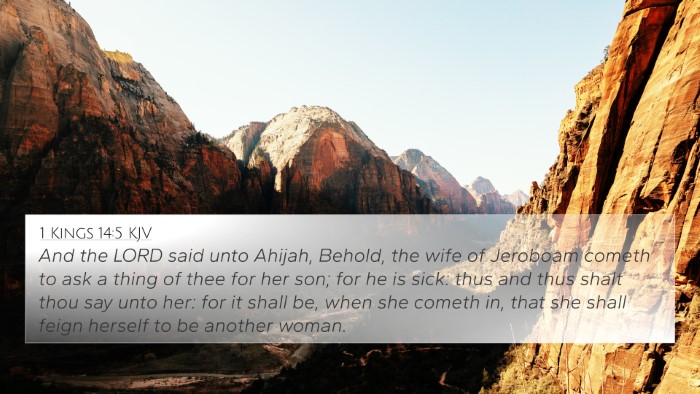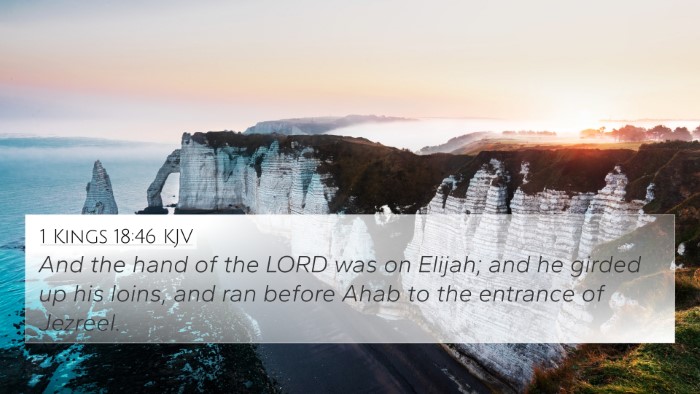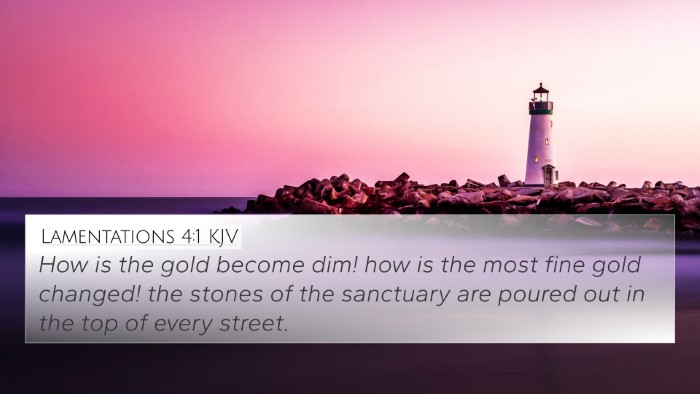Understanding 1 Kings 14:27
Verse: "And king Rehoboam made in their stead brazen shields, and committed them unto the hands of the chief of the guard, which kept the entrance of the king's house." (1 Kings 14:27, KJV)
Summary of 1 Kings 14:27
This verse highlights the actions of King Rehoboam in response to a situation that arose after the division of the Kingdom of Israel. The mention of him making bronze shields instead of the traditional golden shields signifies a shift in status and the defense capabilities of the kingdom. This act symbolizes Rehoboam's attempts to maintain power and authority but also reflects a decline in the majesty that characterized the reign of his father, Solomon.
Commentary Insights
-
Matthew Henry's Commentary:
Henry notes that Rehoboam's decision to produce brass shields was likely a pragmatic response to economic constraints after the loss of wealth due to the kingdom's division. It symbolizes both a practical measure and a certain degree of desperation in attempting to project strength to his followers.
-
Albert Barnes' Notes:
Barnes emphasizes that the switch from gold to brass indicates a significant loss of splendor. This change is emblematic of the decline in Rehoboam’s authority and the overall weakening of the nation due to idolatry and poor leadership, portraying how external influences affected regal status.
-
Adam Clarke's Commentary:
Clarke discusses how the bronze shields served a functional purpose but were inferior in glory. He relates this act to the broader theme of spiritual decay within the kingdom and the king's misguided efforts to retain his symbols of royalty at a time when fidelity to God was waning.
Thematic Bible Verse Connections
1 Kings 14:27 connects to various thematic elements found throughout the Bible, particularly emphasizing the consequences of turning away from God and the decline of spiritual leadership. The following cross-references illustrate these connections:
- 1 Kings 12:26-27 - The origin of Rehoboam's troubles and the division of the kingdom.
- 2 Chronicles 12:10 - A parallel account describing Rehoboam's actions following Shishak's invasion.
- 1 Kings 10:16-17 - Solomon's wealth and the gold shields, indicating the current loss of status.
- 2 Chronicles 9:16 - Further details on Solomon's grandeur in contrast to Rehoboam's decline.
- Exodus 25:17-22 - The significance of God's presence symbolized through the use of precious materials.
- Isaiah 2:7-8 - The warnings against reliance on material possessions, promoting a lesson from Rehoboam's actions.
- Jeremiah 2:13 - The contrast between serving God versus relying on self-made solutions in governance.
Cross-Referencing Biblical Texts
The study of 1 Kings 14:27 provides an excellent opportunity for utilizing various tools for Bible cross-referencing. By exploring the connections and implications of this verse through related scriptures, readers gain deeper insights into the spiritual and historical contexts of biblical narratives:
- Inter-Biblical Dialogue: The dialogue between the Old and New Testaments reveals themes of authority, leadership, and divine warning against idolatry.
- Comparative Bible Verse Analysis: Examining Rehoboam's choices in light of other leaders like Kings Saul and David shows the varied responses to God's calling.
- Cross-referencing Bible Study Methods: The use of a Bible concordance or cross-reference guide can help trace themes of authority and divine judgment throughout the texts.
Conclusion
1 Kings 14:27 serves as an important verse revealing the challenges of leadership and the consequences of straying from God's path. By understanding this passage in connection with others, believers can reflect on the lessons of humility, reliance on God, and the importance of maintaining integrity in leadership. This comprehensive analysis through cross-referencing enriches one's study of scripture and fosters a deeper understanding of the Bible's thematic structure.
